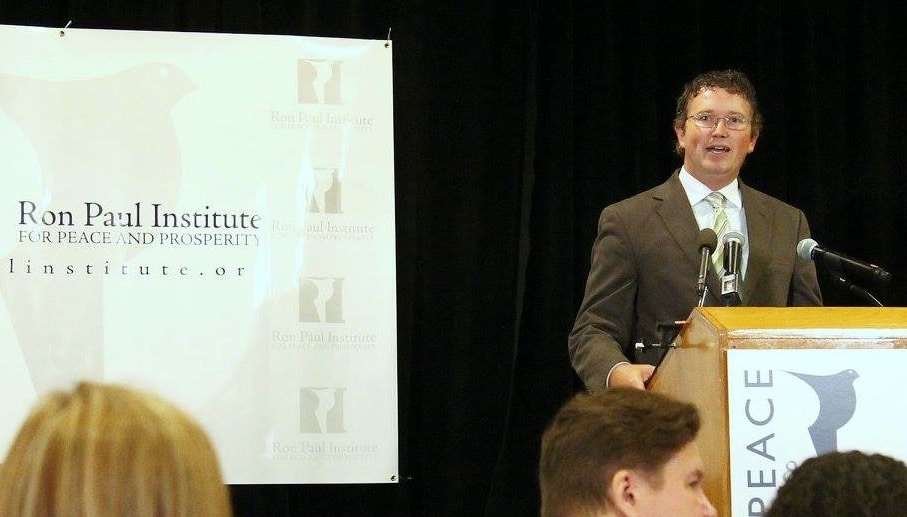Article 5 of the North Atlantic Treaty Organization (NATO) Charter is inarguably non-binding on Member countries to use military force to defend other Members. Most Americans would not know this, as the Treaty has been consistently mis-represented by those with a stake in binding the US to go to war for foreign interests. In fact, a careful reading of Article 5 makes it clear that other NATO Members are free to do nothing at all if another Member is attacked. A NATO Member is only bound to take “such action as it deems necessary, including the use of armed force, to restore and maintain the security of the North Atlantic area.” It may well be deemed necessary to ignore an attack on a NATO Member in many circumstances.
However, misinterpretations are often intentional and perceptions can become more compelling than facts. Therefore any Congressional resolution or other act containing language such as, “The House of Representatives…solemnly reaffirms the commitment of the United States to the North Atlantic Treaty Organization’s principle of collective defense as enumerated in Article 5 of the North Atlantic Treaty,” should be seen as an intentional and willful mis-representation of the actual meaning of Article 5.
The above language, taken from H. Res. 397 on the House Floor Tuesday, clearly intends to convey the impression that any attack on any NATO Member for any reason must be responded to automatically with US military force.
This Resolution is in effect an act by current Members of Congress to bind future generations to fight and die for future foreign wars that may not be in the interest of the United States.
Clearly, an automatic US military response to any attack on any NATO Member in any circumstance would be foolish and dangerous. But the warhawks in Congress and around Washington want nothing more than to bind the US military to the service of foreign powers if that increases the possibility of continued conflict (and campaign contributions from weapons manufacturers and others who have become rich promoting such conflicts).
Tuesday’s Resolution also welcomed notoriously corrupt Montenegro into the NATO Alliance, a country that brings absolutely nothing to the table and has a horrible human rights record. However Montenegro’s accession serves to antagonize Russia, which is what NATO expansion has been all about since the end of the Cold War. A collective defense alliance has morphed into a collective offense alliance, and rather than discouraging wars against its Members it actually provokes them.
So how did H. Res. 397 do in the House yesterday? Perhaps not well from our perspective. The vote was 423-4 in favor. The Democrats were unanimous in their agreement with this pro-war resolution.
The good news? Three of the four US Representatives who voted against the Resolution are Members of the Board of the Ron Paul Institute for Peace and Prosperity: Reps. Thomas Massie (R-KY), John Duncan (R-TN), and Walter Jones, Jr. (R-NC).
Rep. Massie explained his vote against the Resolution by stating that, “the move to expand NATO in Eastern Europe is unwise and unaffordable.”
We must remember these wise and sensible Members of Congress particularly when they take a difficult vote that can easily be distorted by the media and potential political opponents. It doesn’t take massive numbers to get people to finally think. Sometimes it only takes four brave Representatives who teach us more in defeat than the 423 could ever teach us in “victory.”


